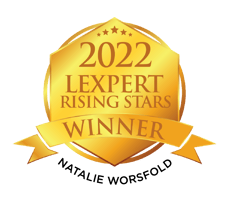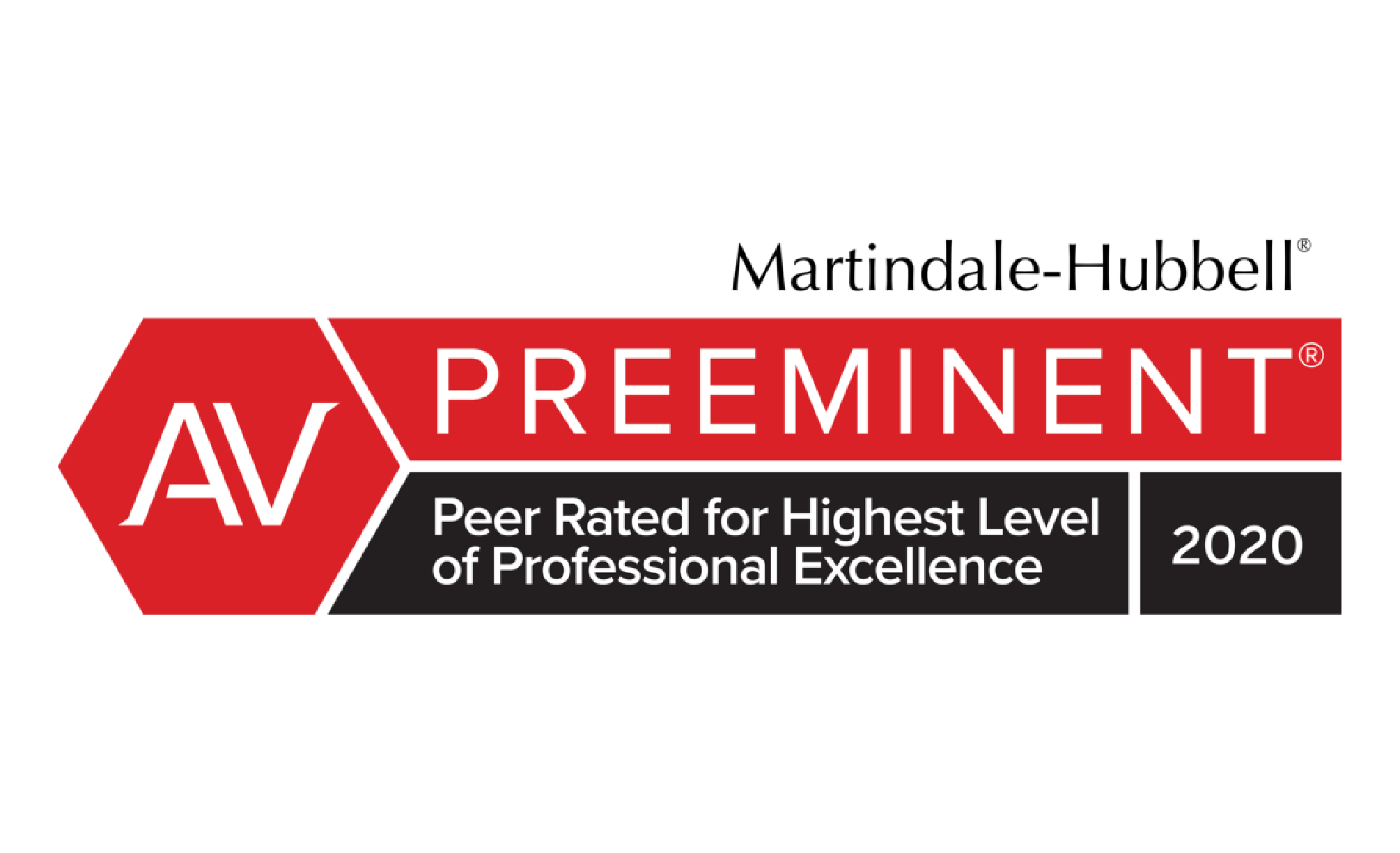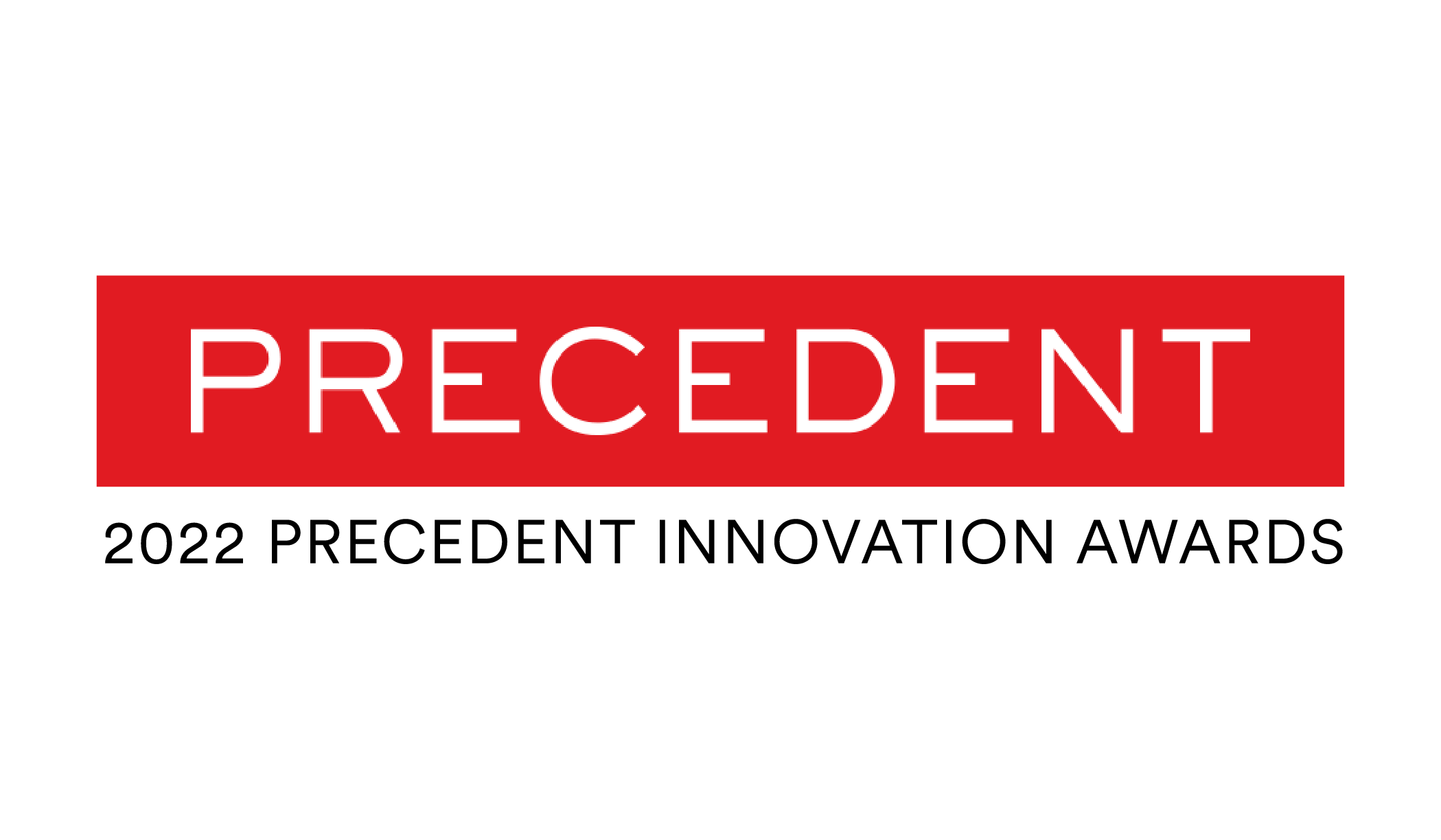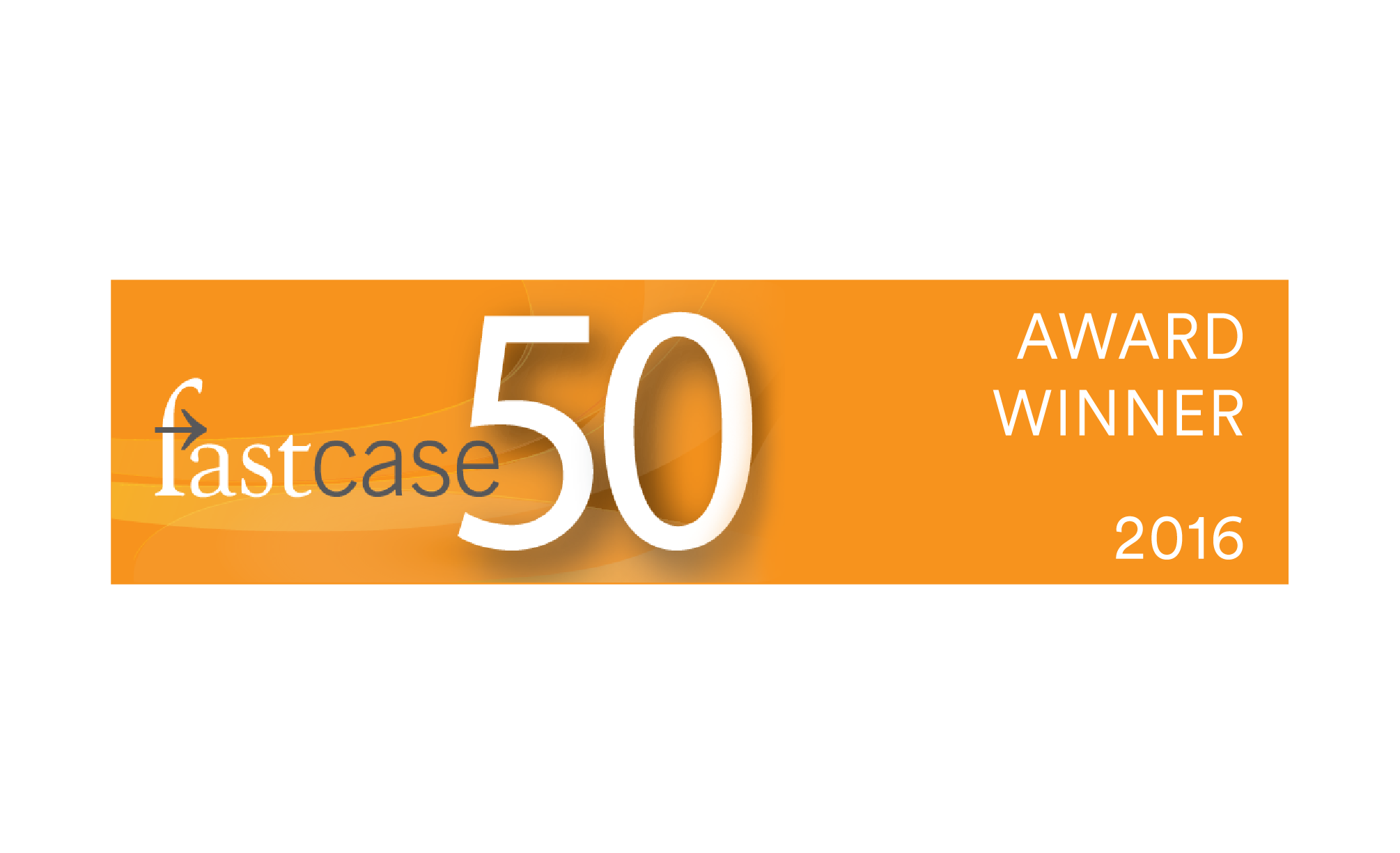
Peter Aprile and Natalie Worsfold interview Ron Friedmann, founder and principal of Prism Legal Consulting and consultant at Fireman & Company. They talk the nitty gritty details of NewLaw: building knowledge management systems, handling budgets, and managing change.
Peter and Natalie dig into Ron's Do Less Law philosophy, and he tells us about why lawyers have to change the way they work.

Ron is a practice management consultant with Fireman & Company. He is an expert in law practice management, outsourcing, knowledge management, e-discovery, legal marketing, and technology for lawyers. He helps law departments increase profit and "do more with less."
In the past, Ron worked at Integreon, a leading legal outsourcing company, and Bain & Company as a strategy consultant.
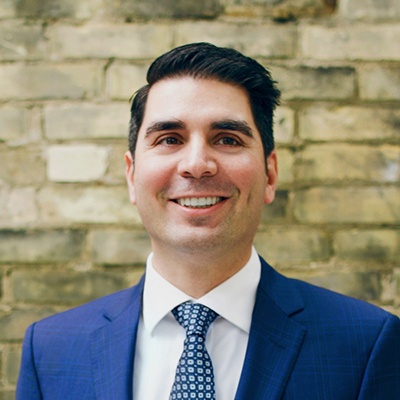
Peter Aprile is a senior lawyer specializing in tax dispute resolution and litigation. His vision as Counter’s founder and his everyday role at the firm are one and the same: to be an agent of change, uncovering opportunities and developing strategies that achieve more than anyone expected. A creative thinker, Peter studies problems from all different angles to find what others have missed. He’s also convinced that he likes winning more than most people.
Different people describe Peter in different ways. At the CRA and the federal Department of Justice, the word relentless comes up quite a lot. Admittedly, so does the word a**hole – but it’s often said with a certain grudging respect, if not affection. Peter’s clients call him a saint. Well, some of them, anyway. His colleagues describe him as empowering and harddriving, but fair. Peter’s friends call him loyal. His wife describes him as a lot to deal with, but worth it. Peter encourages his young daughter and son to call him “The Big Homie,” though with limited success. His mother describes him with the single word mischievous – before going on to complain that he should call more.

Natalie is a tax lawyer who represents individual taxpayers and owner-managed businesses in disputes with the Canada Revenue Agency (CRA). She also successfully challenges CRA decisions denying taxpayer relief and helps facilitate applications under the Voluntary Disclosures Program.
But what you really need to know about Natalie is that she’s a tax litigator with heart. When she takes a case, it’s not out of technical interest – it’s because she cares. And if she believes the government has got something wrong, she won’t stop until it’s been put right. She’s fierce.
Natalie is the co-architect behind many of Counter’s process workflows, software and data analytics systems, as well as our comprehensive knowledgebase (loving named Hank). And when it comes to preparing cases, she’s Counter’s secret weapon – happiest when elbow-deep in evidence, meticulously building creative solutions to seemingly impossible problems. Because the fact is Natalie sees things that other people don’t.
Natalie’s family and friends describe her as loyal, selfless, understanding and fun. They also mention stubborn. To her Counter colleagues she’s a combination of stellar brainpower and contagious enthusiasm who elevates the game of everyone around her.
People
- Richard Susskind
- Nick West
- John Grant
- Casey Flaherty
Practices
- Prism Legal Consulting
- Fireman & Company
- Allen & Overy
- Mishcon de Reya
- Dentons
- Ogletree Deakins
- Baker Donelson
Tech, Tools & More
[00:00] [background music]
Peter Aprile: [00:06] Hi, and welcome to "Building NewLaw," Canada's first and only CPD accredited podcast. It's hosted by me, Peter Aprile and my colleague, Natalie Worsfold.
Natalie Worsfold: [00:17] In each episode, we interview lawyers, legal technologists, and other like‑minded people at the forefront of NewLaw.
Peter: [00:23] We hope that the podcast connects the NewLaw community and helps us all learn more about the approaches that are changing the way that we practice law.
Natalie: [00:33] To learn how you can use this podcast to satisfy your law society CPD requirements, visit our website at countertax.ca/bnlcpd. That's countertax.ca/bnlcpd.
Peter: [00:39] Enjoy the show.
Announcer: [00:41] The Building NewLaw podcast is supported by Counter Tax Lawyers, a new type of tax controversy and litigation law firm. To learn more about Counter, go to countertax.ca.
Peter: [01:01] Hi. On this episode of Building NewLaw, we're talking to Ron Friedmann.
Natalie: [01:06] Ron works with lawyers, law firms, law departments and other legal market providers to improve law firm operations and efficiencies. Ron is the founder and principal of Prism Legal Consulting, and he works as a consultant with Fireman & Company.
[01:24] We mostly know Ron because of his great writing and presentations and his law blog, "Strategic and Legal Technology," which is now in the ABA Hall of Fame.
Peter: [01:32] Why aren't we in the ABA Hall of Fame?
[01:34] [laughter]
Peter: [01:34] Needless to say, Ron is a thought leader and expert, and we want to chat with him about how we can change the way lawyers work, how to do less law, and discuss some of the ways that we can make that happen in 2018, so here's our interview with Ron.
[01:51] [background music]
Natalie: [01:53] So welcome Ron, and thanks so much for speaking with us today. I just wanted to jump right in. You had an article that you published about 2018 predictions, where you mentioned changing how lawyers work.
[02:04] Could you tell us a little bit about what you mean by that?
Ron Friedmann: [02:08] Sure. So, there's a lot of talk today in the legal market about innovation, especially artificial intelligence, and that's all great, but it won't have an impact unless lawyers change what they do day‑to‑day.
[02:21] And when I say what they do, I mean how they actually work, conducting a practice of law, because that's the only way to gain more efficiency and offer clients more value.
Natalie: [02:31] So, focused literally on the practice of law, not so much on the business side and how to get clients or where to get clients and things like that? You're talking...?
Ron: [02:38] I mean on the practice side, because that will tie to the business side as well, but ultimately, clients want more value, and so lawyers have to work more cost effectively, and so they have to change how they practice.
[02:52] I would also say they need to change how they conduct business development, and once they have clients, they need to be more actively managing those clients and their matters, especially on the financial side.
Peter: [03:03] And when you say clients want more value, Ron, do you think you see that? Do you see client demanding more value, or asking more value, or asking more from their lawyers or law firms?
Ron: [03:13] I see it, but we have to ask what it really means, so when I read publications by in‑house counsel or hear them at conferences, they say they want more value. The ACC Value Challenge, I think, started six or eight years ago.
[03:30] So they say they want it. The question is, are they voting with their purses and demanding it? That's a little unclear. Some clients are, some are not.
Natalie: [03:38] And so you talked just briefly there about AI, and innovation, and things like that. In your article, you referred to them as having less of an impact on how lawyers are changing their actual day‑to‑day work. Can you tease that out a little bit more for me?
Ron: [03:53] Sure. What I was getting at is it's great. If you have an innovation or you're using artificial intelligence, that's great.
[04:01] But don't let discussion about those topics distract from other steps that are easily taken today that may not sound as sexy or innovative, but are well established like knowledge management, legal project management, a whole host of practice technologies, and process improvement.
Peter: [04:21] And do you think that's why some lawyers push away or resist change, because it's this idea that this AI area is so big and so removed from their practices that it almost gives them an excuse not to change today?
Ron: [04:33] I certainly think that's true, and I think by talking about it, they feel that they're doing something, which is the talking, but they're not actually changing what they work. So I believe ‑‑ it's just a hypothesis, I can't prove it ‑‑ it satisfies some psychological need of appearing to act without actually having to act.
Natalie: [04:55] When you say psychological need, are you talking about from the lawyers themselves or are you talking more from the marketing of a law firm perspective?
Ron: [05:02] Both, really. I think law firms feel the need to present as innovative and as changing how they work. I think that many lawyers are reading the same articles I am or hearing it directly from clients.
[05:16] And so some of them feel a need to present to the world or even to themselves that they are techy, and tech savvy, and working more efficiently, and if you talk a lot about innovation and AI, you may persuade yourself, in fact, that's what you're doing.
Peter: [05:35] And so, you referred to them earlier, but what are those less sexy, effective solutions that you're promoting?
Ron: [05:42] So, I would start with legal project management, and having professionals price matters, and staff them appropriately, and then monitoring so there's a budget.
[05:55] And then, what's critical is, in my consulting practice I see too many law firms that set budgets, but then the partners who are running matters aren't actively monitoring the matters in as close to real time as possible.
[06:10] And so, they don't have visibility of how they're doing against budget. And so, a big part, and a missing part often, of legal project management is partners acting on real‑time information.
[06:22] So, if you said you were going to spend $100,000 a month for five months, and in month one, you can see three weeks in you're already at $125,000, that at least causes you to ask a question, "Is that OK? Will I make it up in future months realistically, or have things spun out of control?"
[06:41] And that kind of monitoring and adjusting the amount of work or how a matter is resourced doesn't happen often enough, so that would be one example of legal project management.
[06:52] That's what I'd call, in a sense, a control layer, but the actual execution layer goes to practicing more efficiently. And that's having the right technologies, everything from Word macros, to document assembly, or specialized tools for litigation research, or generating debt documents and transactions.
[07:13] And a lot of that's covered by knowledge management, to have an effective system to capture and reuse what your firm has already done, so you're not reinventing the wheel. So you have precedents and documents you can start from in transactions and sample filings for litigators.
Natalie: [07:29] And have you seen a lot of firms investing in these, I guess, less sexy solutions in the last year? And is that why you expect to see an increase in that moving forward?
Ron: [07:39] Yes and yes. So, my day job is with Fireman & Company. We're a 15‑person consulting firm serving larger law firms and law departments. And we've done quite a bit more knowledge management work in the last couple of years, and a lot of it is clients reaching out to us, so, I think there are a lot of firms that realize that they need to up their game in that.
[08:01] Some of it's explicitly about knowledge management. Sometimes it's elements of knowledge management like improving the use of document management systems or being able to find information across the firm more effectively with enterprise search.
Peter: [08:14] Can you give a specific example of something you guys have worked on in the last year that's really progressed a law firm?
Ron: [08:20] Sure. We've helped several firms with document management systems, selecting and are beginning to deploy a new generation of document management systems where we'll help meet both security needs.
[08:32] But by redesigning the user interface, it makes it much easier for lawyers to work and to collaborate, because a lot of times when you look at law firms and how they've used document management systems in the past, you might find 40‑60 percent of the lawyers use it and the others don't.
[08:52] And then it's, where are the documents? How do you collaborate? How do you ensure security against breaches, and security with respect to ethical walls and who's allowed to see documents? So, we've helped firms with that.
[09:04] We've also rolled out quite a few ‑‑ I think over a dozen ‑‑ redesigned intranets where the intranet suite design, they're not meant to display the lunch menu in a fancier format. It's the opposite.
[09:17] It's, how can we present to lawyers information about their practice, both substantive updates about the law, about the documents they're working on, and about the financial metrics, so there's a dashboard so they can see what's happening with their clients and matters so they can act on it.
Peter: [09:34] And when this type of thing or other types of thing get rolled out to these law firms, do you place an internal champion, or does somebody from your company act as an internal champion on site for a period of time? Or how does that work?
Ron: [09:45] It's both, and it's a great question, and I'm really glad you asked that. Change management and adoption planning is critical. We are not believers of, "If you build it they will come." Just the opposite.
[09:57] So, sometimes we've acted as the champions, but it's better and more often we work with our clients to develop a plan. So, we'll help them with the planning, but the actual champions are people we help the client identify internally.
[10:11] And we give them a communication plan, and when I say we give, we work together to construct a communication plan, address adoption steps and prospective success metrics, and ways of then measuring whether or not they're meeting their targets.
Natalie: [10:24] And what kind of size of firm are you typically working with?
Ron: [10:27] We have worked with firms from as few as 100 lawyers, which I know that for many, they'd consider that a larger firm, but we've also worked with firms of over 2,000 lawyers. I want to say the modal firm we work with is probably between 500 and 1,000 lawyers.
Natalie: [10:45] And do you see any difference in uptake on the implementation side depending on the size of the firm?
Ron: [10:51] I think there's some selection bias in the sense of who's come to us. So, especially the smaller firms, they probably have better uptake, because not every 100‑lawyer firm is doing as much technology as our clients are. So, those are firms that are motivated on the smaller end.
[11:10] I think things can happen faster in those firms, but it's hard. While we have metrics internally ‑‑ first, I can't share ‑‑ but sometimes they're soft, and it can be hard to compare, so, I'm not sure I can draw a great generalization.
Natalie: [11:25] Is there anything you've seen in terms of a common trait in the firms that are coming to you and who are interested in making these kind of improvements?
Ron: [11:33] I would have to say no, because we've worked with firms that are very much middle market. I think, by now, we've worked with 4 of the 10 most profitable law firms, and then, some of the smaller firms, and they have very different characteristics, so it's hard to generalize as to who comes to us.
[11:52] I guess what I would say is some come because they are feeling the economic pressure, others because they can look out on the horizon and say, "We don't want to be facing those pressures so what can we do today to act?"
Natalie: [12:04] Yeah, it makes sense to have both angles coming in, in terms of motivation and things like that.
Ron: [12:10] And then there's some that are just like, "We want to practice better," right? It's not even so much the economics as it's like, "We see what's going on around us. We're too busy. We feel like we're inefficient. Help us be better." So sometimes that's a motivator.
Peter: [12:21] And do you think this is the direction that all law firms will go?
Ron: [12:25] I think it's a direction all firms will have to go or eventually they will suffer financially. I don't know how much of this, the sorting of laterals and dissolutions...Sedgewick disappeared, and is that because they weren't efficient? Is that because they didn't have a good strategy?
[12:44] I don't really know, but we're regularly reading about firms merging or dissolving, and what look like last‑minute combinations.
[12:53] Of course, not all, and you just have to wonder, if those firms had played their cards differently, would they be in that position, or is that just the underlying economics of law firms, that consolidation's necessary. What do you think?
Peter: [13:06] I think it's tough to say. I don't think many firms, from what I've seen, are feeling any great impact in the current day from not adopting some of these practices or starting to drive them through their organizations, and I keep thinking to myself, "That day will come."
[13:22] What I'm trying to get a sense of, and I wonder about, is when is that day actually going to come? Are we five years from that point? Are we 10 years from that point?
[13:29] And what does that look like, that this becomes commonplace in law firms? And like I said, the only way that I think it becomes commonplace in law firms is if all law firms start to feel a little bit of that squeeze.
Ron: [13:39] I agree and maybe have a slightly different take, which is I think many firms have been feeling the pressure for a while. Now, even though they're feeling the pressure, they're still quite profitable.
[13:49] But, if you look at the industry data, the realization rate is down. Capacity utilization is down, meaning the average number of hours a lawyer bills has fallen.
[14:01] And so, sometimes the drive for knowledge management or legal project management, which we talked about earlier, is because firms are trying to adjust their realization challenge, and I believe those will continue.
[14:14] Granted, clients aren't as sophisticated as I had hoped they'd be in pushing for alternative fee arrangements and are often satisfied with discounts, but as they ask for more and more discounts or higher discounts, that's going to hurt profit margins.
[14:27] So, I think that's already been happening, and I expect that trend to continue. I'm not sure there's a point at which it becomes a crisis, or we fall off the cliff.
Natalie: [14:37] Are any of the firms that you're working with talking to you about changes to lawyer compensation or anything like that?
Ron: [14:43] We bring it up. We're not specialists in compensation, per se, but depending on the nature of a project, if a law firm really wants to embed change, then we will have discussions up front about the compensation.
[14:59] Because you can put in all kinds of technology and process improvement, and ways that lawyers can work more effectively, but if it doesn't affect a lawyer's compensation, it may not matter.
[15:14] Now, compensation's not the only reason people act. As I said, some will take less money to have more fun or practice in a way they think is better, but on balance, there has to be some alignment between the changes you're hoping for and partner compensation, or you risk them not adopting.
Peter: [15:34] One of the other things I think about is evolving roles, and you have the compensation lever, and then, you also have the ability to construct different roles or put people in different roles. Are you seeing that type of movement in law firms?
Ron: [15:47] What kind of roles? Explain a little bit better what you mean by those roles.
Peter: [15:51] When we talk about process improvement or things like that, or pricing, are you seeing more move to those as are referred to commonly nowadays allied professional roles, and inputting those roles either in law firms or directly into the, let's call it, lawyer's workflow?
Ron: [16:07] I want to be careful how we describe movement. Most of those new roles are not being filled from the ranks of lawyers. I do think at the firms that are more forward, those allied professionals are being more integrated into teams. I do worry that the caste system that prevails in the larger law firm market makes it harder for those professionals to be effective.
Natalie: [16:30] In terms of bias with them?
Ron: [16:33] There is still ample number of lawyers who have an attitude. "Well, you're not a lawyer. What do you know?" Or the inverse, which is it's the master‑of‑the‑universe syndrome, like, "I know how to do this. I don't need someone to tell me how to do this."
Natalie: [16:48] Obviously, that would also bleed into, "This is part of my domain. I don't want to give it up and have someone else take over part of my workflow," as it were.
Ron: [16:56] Right, but that's a portion of the market. There's also a portion of the market where they're quite happy to have pricing, or a legal project management professional, or someone else on the business side of the law firm attend a pitch meeting with a client.
[17:11] And I've heard plenty of stories of friends who are senior managers in law firms, not practicing lawyers, who say they go and meet with a client prospect, and it's mainly the legal operations professionals talking to the law firm, professional managers rather than the lawyers.
[17:28] Because the client assumes the lawyers are going to be good lawyers. They're not impressed by thick bios. What they want to know is how the firm will work. Now, I don't know what percent of the time that is but it's certainly common enough.
Natalie: [17:39] That kind of ties nicely into your idea of doing less law. Can you explain a little bit more about that idea and where you see that going?
Ron: [17:49] Sure. First, I started it as a Twitter hashtag, and so for those who don't know about Twitter, you have a limited number of characters, and so, I needed something short.
[18:00] [laughter]
Ron: [18:00] I wanted something that had not been used, and I wanted something provocative, and so, "Do Less Law" encapsulates a couple of ideas. One is preventive law.
[18:13] So, Richard Susskind is well known for saying, "Why aren't we building fences at the top of the cliff? Why are law firms acting like the ambulances when someone's fallen off the cliff?"
[18:25] So what steps can we take to prevent problems from happening? And we're seeing movement of that with big data analytics. Not as much as I expected, but some.
[18:35] Another element of Do Less Law is a lot of lawyers ‑‑ and this is true for in‑house lawyers, as well as law firm lawyers ‑‑ learned in law school and grew up professionally with this idea of "leave no stone unturned," sometimes leave no mote of dust unturned.
[18:52] And, a lot of times in the business side, the business people ‑‑ who own the ultimate decision about how much risk they're willing to take ‑‑ would rather have the lawyers scope the work to do less and assume some of the risk, because not every stone was turned over.
[19:10] So, part of Do Less Law is to scope matters appropriately and align the lawyers with the clients' risk adjusted level. It's both avoiding problems and then putting the amount of resources into the problems, and then the third element is for the work you have to do, do it more efficiently.
Natalie: [19:28] You made a great comment, actually, in your ReInvent Law talk that clients have to care as much about cost as they do about outcomes, and I think that was a great way to encapsulate what you're talking about when you say risk adjusted decisions. How can lawyers help clients to see that?
Ron: [19:46] That's a great question and I don't know if I have the answer because it depends whether you mean in‑house lawyers or law firm lawyers.
[19:52] Because the in‑house lawyers are motivated almost as much as the outside counsel to have good outcomes, I think they fear a deal going south or litigation not coming out the way they want, and so, they may not always be motivated to talk to their internal business clients about how much risk are we willing to take.
[20:13] The outside counsel are not always willing to have those discussions either, but that's where legal project management comes in, because our step is scoping.
[20:22] How much work are we doing? How worried are we about the risk and making a reasonable decision about how much work to do?
Natalie: [20:29] And have you seen firms implement the scoping side of things successfully? I always look at scoping a legal project and thinking, "That must be very overwhelming for a client to go through if they're not particularly sophisticated."
Ron: [20:41] Oh, I've seen scoping exercises both successful and unsuccessful. I think that you do need some sophistication on the client side.
[20:51] But an effective lawyer, inside or outside, for a client who doesn't know the nuance of law, in my opinion, they have a professional obligation to explain the different paths, and try and align around what the right level of effort is.
[21:07] And what risk is the client willing to take, the person paying the bill, or either paying the bill for legal fees, or who would pay the bill if things don't go well?
Peter: [21:16] Have you seen lawyers do that well? What have they done to do that well, in your experience?
Ron: [21:21] They sit down with people on the client side, either in‑house lawyers and/or business people, and they go through plans, and you'll ask.
"[21:30] How many depositions do you take? How hard do you want us to negotiate these provisions? Here's what we think are the key provisions. Which are the most important to you and what are the fallback positions?"
[21:41] So, I think there are ways. Both in litigation, in transactions, and in regulatory counseling, there's always a give and take. An effective lawyer knows the terrain and can outline different approaches.
[21:55] And I've never been a big fan of a scorched earth approach in negotiations with the government or in litigation, or even in a friendly transaction, trying to negotiate for gain on every point. But, if you're going to do that, at least make it a conscious decision.
[22:12] So maybe there are times it's appropriate, or maybe there's some clients who insist on it, but there's other ways of conducting all the three kinds of legal matters where you're not arguing every point, and you're still an effective and a zealous advocate.
Peter: [22:26] We have seen you in the past talk about risk and decision analysis and decision trees and stuff like that. We haven't seen any of your writing in that regard for a little while now, but have you seen that employed?
[22:34] And why were you writing about that earlier on? And, I guess as a follow up, why not so much now?
Ron: [22:40] For people who are listening who may not know what that means is, in litigation there's a formal technique called decision trees or decision risk analysis, where you diagram out a case on what are the possible branches it could take.
[22:55] And at each branch you look at the probability, and if you can't assign dollar values, it doesn't work, and then, you have this what can be a complex tree that tells you the expected value of a case.
[23:08] Why haven't I written about it? It's because I got tired of it, frankly, the market.
[23:12] [laughter]
Ron: [23:12] First of all, I'm not an expert in it. I was trained in it and I have done decision trees earlier in my career, and periodically, when I find lawyers who are doing it I engage them, but that's another great example of a topic that isn't as sexy.
[23:30] It's kind of, in some ways, more scary than AI, because AI's this magic box and the technologists will take care of it, but if you're going to do a decision tree, you have to sit down and really think hard about your case.
[23:41] And be able to translate it to this specific form of diagram, and then be willing to put numbers down, and that doesn't require technology. You need a little bit of technology to run the decision tree, but that's a really hard process.
[23:54] And I attended a day‑long decision risk analysis seminar, I think, in 1989, and they're still available. But why haven't more lawyers done it? Beats me.
[24:06] No, I think a lot of lawyers would say, "It's too much effort for what's at stake," and I think if they did it more often, then you'd find where the threshold is.
[24:16] And when you have millions and millions of dollars at stake ‑‑ I don't know where the threshold is either ‑‑ but I think once you have tens of millions involved, I'm not sure why you wouldn't do a decision tree.
Peter: [24:28] Yeah, because when I think of your Do Less Law, and I think about what you were talking about earlier, in terms of sitting down and doing some of the hard work of mapping out what the options are.
[24:36] And having an open discussion with clients to understand what the scope of the thing should actually be, that to me seems like the natural tool to frame those discussions or to have those discussions.
Ron: [24:46] Absolutely, because there'll be some instances where if you can diagram it out, and you talk through all the nodes and all the potential paths, a client might say, "Gee, it's not a very good case for us. Maybe we'd better settle earlier." [laughs]
[25:00] Or they may see the opposite. They may think it's really bad, but then you do a credible decision tree ‑‑ which doesn't mean you will be right.
[25:07] It might be right at the time. It doesn't mean that's the outcome. The clients might say, "Wow, we have a better case than we thought, so maybe we're more willing to invest up front."
[25:16] I know at a firm I worked at in the '90s, there was one occasion, one matter, where the party we represented put together a decision tree, then worked with opposing counsel ‑‑ actually the opposing client represented by counsel, and said, "Do you agree with this decision tree?"
[25:31] And there was a lot of discussion, and they said, "Yes." And they said, "OK. Now plug in your most favorable numbers at each node," and when they did, they saw that they still had a pretty weak case, which led to a pretty quick settlement. So, it can be used even in a negotiation.
Peter: [25:46] This idea of Do Less Law, getting back to that point. Is it a call to change law firm behavior, and if so, how does that play out?
Ron: [25:56] Well, I would say it's a call to change lawyer behavior, because it's true for in‑house lawyers, and it's a call to think about, "Can I prevent problems?
"[26:06] Then for the problems I can't prevent, and legal representation is needed to align the amount of work I do with what the risk adjusted appetite of the client, and then for that work, to execute it efficiently."
Natalie: [26:22] What law firms would you say you've seen that have gone furthest in achieving this, in terms of doing less law, and changing how lawyers work, and all of the things that you're advocating for? Who's performing the best?
Ron: [26:36] On Do Less Law, I don't have a good metric, and on who's doing the best in efficiency, I have too many clients that are doing too many interesting things where whoever, whatever, it's not fair to start naming some names.
Peter: [26:53] Right, so let's not say. We'll rephrase that. Let's not say who's doing the best, and we'll take your clients out of the mix for obvious reasons. Who do you see out in the legal market that you have your eye on, that you're interested in?
Ron: [27:06] So, if I look at the UK ‑‑ so I take it outside my immediate market, although we've done some work in the UK ‑‑ and when I look at Allen & Overy, and their...I can't remember what they call it now, but they have multiple prongs of trying to do work different ways.
[27:25] So, they have online legal services. They have a staffing service. That positioning, I think, is very interesting because they've really tried to think through...
[27:38] So, on their main navigation, they have a lab called Delivery, and they talk about advanced delivery services with legal service centers. So, they've set up, I believe, by now, two or more lower cost centers with both lawyers and business services.
[27:55] They have an online service, a staffing service, technology, project management, and the most recent is they have Fuse, which is a tech innovation space, so I think that's a nice positioning.
[28:06] How deeply it goes and what the impact is, I don't necessarily know, but I think that's a firm that I really like, that one way they put everything in an advanced delivery services framework.
Natalie: [28:19] And also, you'd written an article. I think it was released early today about Mishcon de Reya.
Ron: [28:25] Yes.
Natalie: [28:26] And what are they doing?
Ron: [28:28] They've had a number of initiatives. They've had a tech incubator, their‑ own e‑discovery, some cyber security, and I was interested in, how do they push that kind of change down into the ranks?
[28:43] And the examples that Nick West ‑‑ who's their Chief Strategy Officer and runs their innovation ‑‑ gave, was in their real estate practice, they changed how they managed deals like shopping center or other larger real estate deals, where there are multiple leases, and how the information flows.
[29:01] So, they're doing more work, but it adds more value to the client. So, some of the work the clients had done, the law firm's now doing, but very tech enabled, and that's changed both what the firm and the clients do.
[29:12] And then, the other is for litigation, they're using a product that helps assemble the documents, the facts, the witnesses, and time lines more effectively, and quite a few litigators are using that.
Peter: [29:25] Is that something they built or is that something...?
Ron: [29:27] No, they're licensing a product called Everchron.
Peter: [29:29] Do you know Everchron? I don't know Everchron.
Natalie: [29:33] I've heard of them. I think they were part of their lab, weren't they?
Ron: [29:36] Yes, they were part of the lab, and then Mishcon de Reya did an enterprise license, and then they actually invested in the company.
Natalie: [29:44] That's great to see the investment side of it in particular, I think.
Ron: [29:48] Right. I think that's an interesting approach, and Denton's doing something similar. I think that's become more common. It's not unique, but it's not widespread.
Peter: [30:00] What did we miss, Ron? I think we've covered everything we wanted to cover with you, but I feel like if there's any gaps or anything that you wanted to get out or think that's something that we've missed, I'd love to give you that opportunity to add.
Ron: [30:10] So people understand in the US, at least, if I think about firms, and it's a firm we've done work for, Ogletree Deakins has a lot of online services and legal project management that's roughly equivalent to Allen & Overy's advanced delivery services.
[30:30] Baker Donelson is also doing a lot of innovative work. Fireman & Company, we helped them build their practice portal that's very sophisticated. They have some online services, some alternative delivery. So, a big investment in legal project management, so it's not just the UK.
[30:48] I do think ‑‑ I can't remember now, I'm spacing on who said it, "The future is here, it's just not evenly distributed." And so we can look at firms, the really large global firms like Allen & Overy, firms like Ogletree or Baker Donelson in the US, that are doing things differently.
Natalie: [31:06] You were working with a firm to implement Umbria. Has that had a lot of uptake? I hadn't really come across their product, and I was on their website yesterday, and it looked like a great piece of software.
Ron: [31:17] So, Umbria is actually two things. It's legal project management and pricing, lumping those together and also experience management.
[31:26] And it's very hard for me to know uptake of particular products, but that class of product, both the class of legal project management software and pricing software, has had good uptake as well as there's a whole new class of software for managing experience that's also growing.
[31:43] Because that goes back, we touched on very early in the conversation on business development, and lawyers needing to do that differently.
[31:50] What's become key is to shift from this idea of, "We're great lawyers. Here's my bio. Aren't you impressed I went to these Ivy League schools?" to, "Here are the matters the firm has worked on. Here's the experience our lawyers have."
[32:02] And there's now software that helps manage that very systematically to capture more information about matters and lawyers so you can use it in pitches, and so you can use it to staff matters, and so lawyers can use it to find someone for consults on ongoing matters.
Peter: [32:19] Very neat.
Natalie: [32:20] Anything else, anybody?
Ron: [32:23] No, I think we've covered a lot, so thank you very much indeed.
Natalie: [32:27] Thank you.
Peter: [32:28] No, thank you, Ron, and we'll continue to read everything you write and look forward to more of that.
[32:33] [background music]
Ron: [32:33] All right, well, thanks.
Peter: [32:34] Thanks so much.
Natalie: [32:35] Thanks.
Peter: [32:35] So, we started talking about Ron's recent article, "A 2018 Prediction ‑‑ Lawyers Must Change How They Work," Ron's prediction, which he says, "Lawyers must change how they work," which is not a prediction. [laughs]
[32:57] And he says it at the beginning of the article, it's an edict, as much of a prediction, but nobody is saying, nor do we hear Ron say in the interview that lawyers are actually going to change how they work.
Natalie: [33:08] He did say that they're changing, so he said his prediction was based on the fact that he's seen a rise in this sort of work in his consultancy company, so that is a sign of law firms and lawyers changing a little bit about how they work.
[33:21] So I was looking to see what Ron predicted in the previous year, to see how I could compare that, and it's still the same kind of message.
Peter: [33:28] [laughs]
Natalie: [33:29] It's changing the way lawyers work, and in incremental, less sexy projects that you need to go through and you need to implement if you're going to work better.
Peter: [33:38] But slow.
Natalie: [33:39] Slow. All of the messaging I hear from Ron is slow and incremental change is how we're going to get there, and I think he's right. Do you see anything else?
Peter: [33:49] No, I don't see anything. What do you think about the idea of this...We talked about "do less law," which again, almost sounds, when you read Ron's writing and when we talked to him today, it's almost as much of a challenge as anything else. Do you think any law firms are going to take the challenge?
Natalie: [34:09] I don't know if it's directed at law firms. I guess it is. I don't know if I see law firms being the ones driving the idea of doing less law.
[34:19] Maybe some of the preventative measures that Ron touched on, so when he's talking about releasing online tools and things like that to help manage and prevent litigation or something like that, like the compliance tools, I can see law firms getting behind that.
[34:34] But at the end of the day, every lawsuit or problem that is prevented, I think law firms are still in the mentality that that just took a dollar out of their pocket.
Peter: [34:46] Because of the way I view the world, I guess, it's hard for me to believe that people, that lawyers, are consciously not taking steps that are in their client's interests. That's the problem that I have with that statement.
[35:02] And at the same time, I can't imagine many law firms saying, "Do less law," as a banner they want to wave throughout their law firm, in anything other than ‑‑ Ron put his finger on it as well, which is anything more than kind of a marketing issue.
Natalie: [35:17] I see it in the efficiency side. So "do less law" has lots of different areas you could focus on, and I think you're more likely to see law firms looking at the efficiency side and things like that rather than perhaps the preventative side.
[35:32] We talked a little bit about, just to stay on the "do less law," who would be driving it, so who do you see in terms of driving that movement, because one of the things that went through my head is people in Ron's position, so people who have, perhaps, left the practice of law or are becoming frustrated with it, and then they see this as a banner they can fly under.
Peter: [35:53] Yeah, I think there's too much self interest there for anybody to say the consultants are telling us that this is the path to success, and therefore, we should take this up. It's been said many, many times before.
[36:08] I think that this needs to be pushed by in‑house counsel. I think they are the most sophisticated clients out there, and I think that to the extent that in‑house counsel starts to push on those buttons, and more and more of them do, I think in that, that is the way that this gets adopted.
[36:23] And I don't know if this is the case, but maybe trickle down to "less sophisticated" clients as this idea is adopted on a more widespread basis. That being said, that idea of less‑sophisticated clients, I think that gets a little overplayed.
[36:43] It almost builds in an excuse in terms of why it isn't happening in small or mid‑sized businesses, businesses without their own legal departments. I don't think that this is beyond the capability, capacity, or interest of "less sophisticated" clients, and we really need to think of another term for that.
Natalie: [37:01] Yeah, it drums back to that non‑lawyer kind of idea.
[37:04] [laughter]
Peter: [37:04] Yeah, that's exactly what it does, and it kind of builds in an excuse. I look at what we put in front of our clients, and there, they're perfectly capable and interested in understanding the mechanics, and the reasons, and the analysis that underlie our recommendations.
[37:21] I think it's a matter more of lawyers not putting it to them and using the excuse of saying, "These aren't the highest level sophisticated clients, and therefore, we won't put this type of analysis or we won't put this level of analysis in front of them."
[37:35] Where I think the reality is has nothing to do with that, and it has more to do with the fact that lawyers just don't do it.
Natalie: [37:40] Choosing for their clients.
Peter: [37:42] Absolutely, and again, going back to your first point, in their own self interest, right?
Natalie: [37:46] So we talked about, what are the ways that we can make this happen in 2018? Ron didn't really touch too much on what people in the legal industry could be doing in terms of accelerating change, let's say.
[37:59] I know he talked about the labs that some of the law firms have. Does that kind of thing interest you? Do you think that's a good path, or a good way forward?
Peter: [38:07] I like the idea of the labs, and I like the idea of our law firm doing something like that. To me, that's more contributing to a community than it is making any change happen within our law firm itself.
[38:18] How do we change quicker? Is that the question? How do we continue to push innovation or a different mindset through our law firm?
[38:28] I think the answer is simply choosing to do it, and taking a small bite, and moving forward each quarter or each year. And how does change happen? People choose to make change. I don't know what other answer there could be, do you?
Natalie: [38:40] No. So choosing to change is difficult. We've talked about the path of least resistance, and how much easier it is to just carry on with the status quo. Can you think of anything to make it easier to choose to change?
Peter: [38:55] Because you're asking me to convince people to choose to change?
Natalie: [38:57] Yes.
[38:57] [laughter]
Peter: [39:00] But the reality is that I suspect that most people that are listening to this podcast don't need that, and you and I have had conversations offline about whether that's our role or not. "Why is it in our interest, or why is it part of our...
"[39:13] Is it in our interest or desire to go around and convince other law firms that are not predisposed or not interested in practicing better ‑‑ however they define better, be it quality or speed or profit ‑‑ and persuading people to do that?"
Natalie: [39:30] But there will be people listening who are perhaps in a law firm that isn't as inclined to change as, perhaps, they are, and they're looking for ways to persuade their coworkers?
Peter: [39:37] I don't know, and I see many, many more people, and come across and start relationships with more people, who have had that feeling, and the response to that feeling, after some initial attempts to cause change internally, frankly, I see all these people leaving.
[39:59] And we talked to John Grant about attrition rates and things of that nature.
Natalie: [40:03] That feels too black and white, and so your options are try and persuade, and when that fails leave.
Peter: [40:08] Right.
Natalie: [40:09] [laughs] No, you might need to leave, you're right.
Peter: [40:12] I don't know. And again, it's maybe just a function of where we are in the world, but I haven't heard the success stories. I haven't heard the people who are in big law firms that have desired this change that have had any effect on making change happen within their organization.
[40:32] And I think that if that's going to work, it's not going to come from one person within that organization. It's going to come from that person banding together with similar‑minded people within that organization.
[40:42] But again, I have not heard that happen either.
[40:45] I do keep hearing and meeting people who leave those environments and seem like they are glad to be free from attempting to persuade people in higher‑level positions, people with more authority or with decision‑making authority, to make the changes they want in those organizations, and instead, as I said, feeling free, finding those people outside of those organizations.
Natalie: [41:07] Be the change you want to see in the world"? [laughs]
Peter: [41:09] No, but can you tell me that? So what? Law is going to be changed because a series of consultants come by and said, "You should really do x, y, and z, and in order to do x, y, and z, by the way, I happen to sell it, so I'll help get you there"?
[41:24] There is a natural cynicism and skepticism that's going to come from that.
Natalie: [41:31] I think that's why everyone says it's going to come from the clients, that the clients are taking too long, in my view.
Peter: [41:34] You think the clients are taking too long, because we're too far down the road, right? If you're a law firm that has not implemented some of the things that we've implemented, again, this goes back to what Casey Flaherty said. It's irrational to be on this path when nobody's asking you to be on this path.
Natalie: [41:53] When are the clients going to catch up?
Peter: [41:54] Time will tell. It doesn't look like soon, and that's what we asked Ron about, right, was when do you think that tipping point is going to be? When do you think that there's going to be a real drive?
[42:05] And I don't blame Ron for this, because nobody knows, but there was no answer there.
Natalie: [42:10] I don't think anyone's got it.
Peter: [42:12] We often talk about this idea that people are motivated by fear. They're more interested in protecting, in not losing something, than they are gaining something.
[42:19] So unless there is some real signs or a real line that says, "At this point, you'd better have transitioned over," or, "At this point, you'd better have changed how lawyers work or the lawyers in your law firm work," why does anybody think anybody's going to be rushing to start this? I don't see that.
[42:50] [background music]
Natalie: [42:50] For this episode's show notes and transcript, and how to satisfy your law society's CPD requirements, please visit our website at buildingnewlaw.ca.
[42:50] We'd love to hear from you, and if you have any feedback, feel free to send an email to info@buildingnewlaw.ca, or come and find us on Twitter, @buildingnewlaw.
[43:00] Don't forget to subscribe on iTunes, our website, or wherever else you get your podcasts.
Announcer: [43:04] Thanks for listening to the "Building NewLaw" podcast, brought to you by Counter Tax lawyers. To learn more about Counter, go to countertax.ca.
Lawyers that have completed the S03E03 BNL CPD cam claim a 40 minute Professionalism CPD credit.
- To access the S03E03 verification examination click this link.

.jpg?width=120&name=Counter%20Tax%20Litigators%20Logo%20Stacked%20(MidnightBlue%20on%20White).jpg)


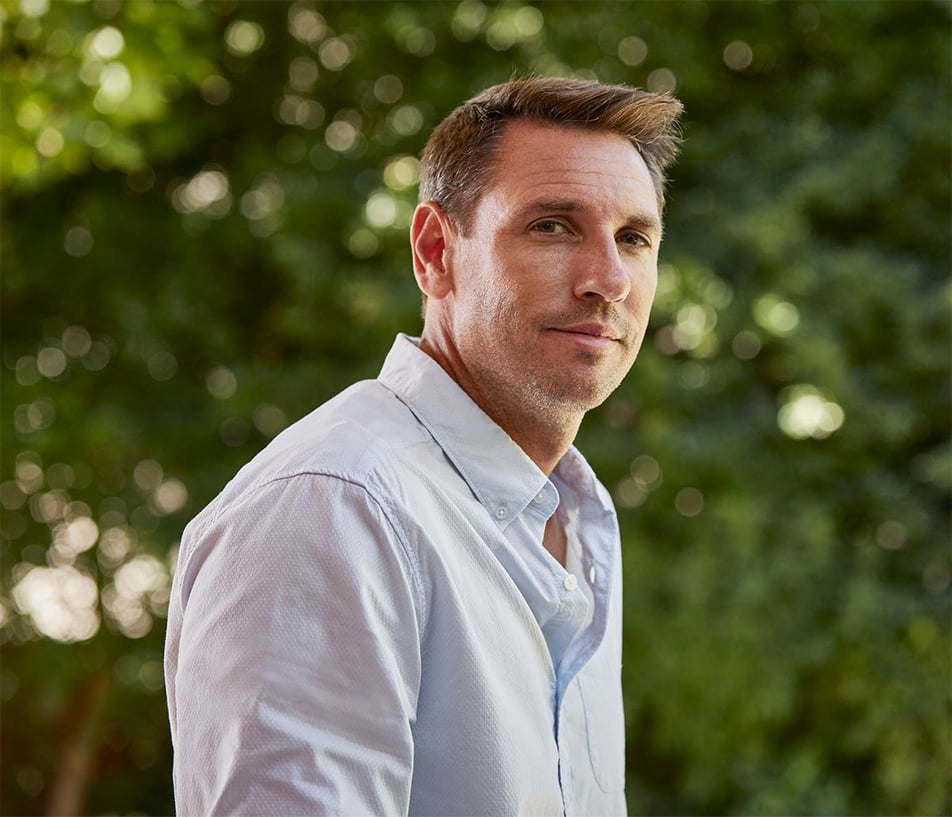

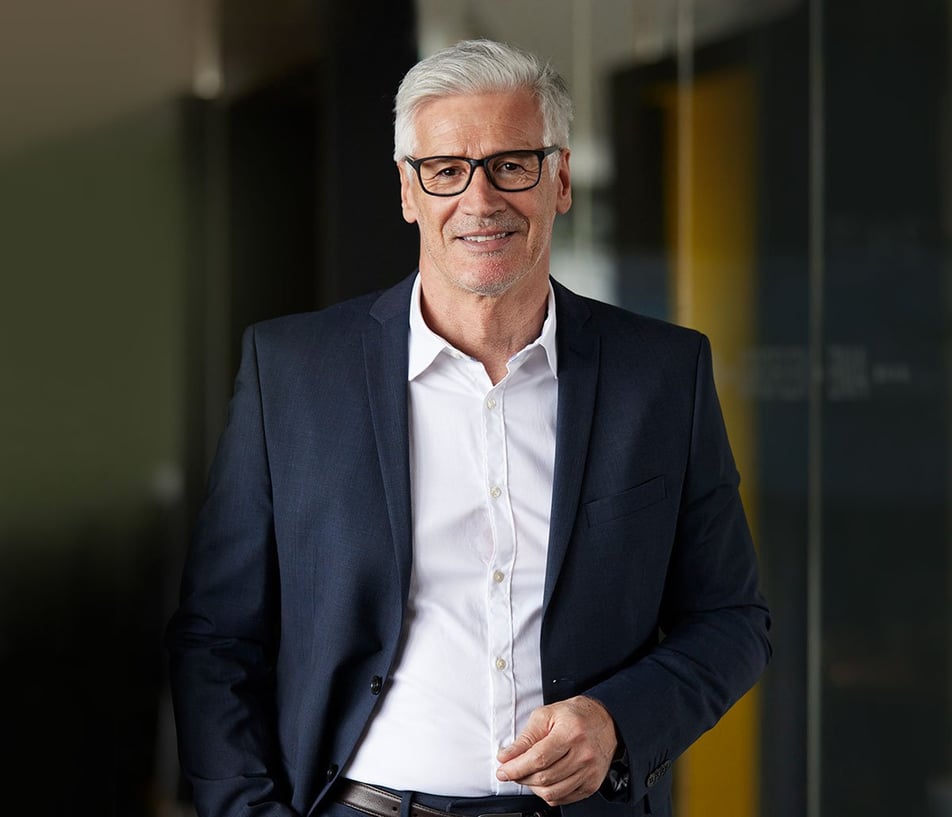

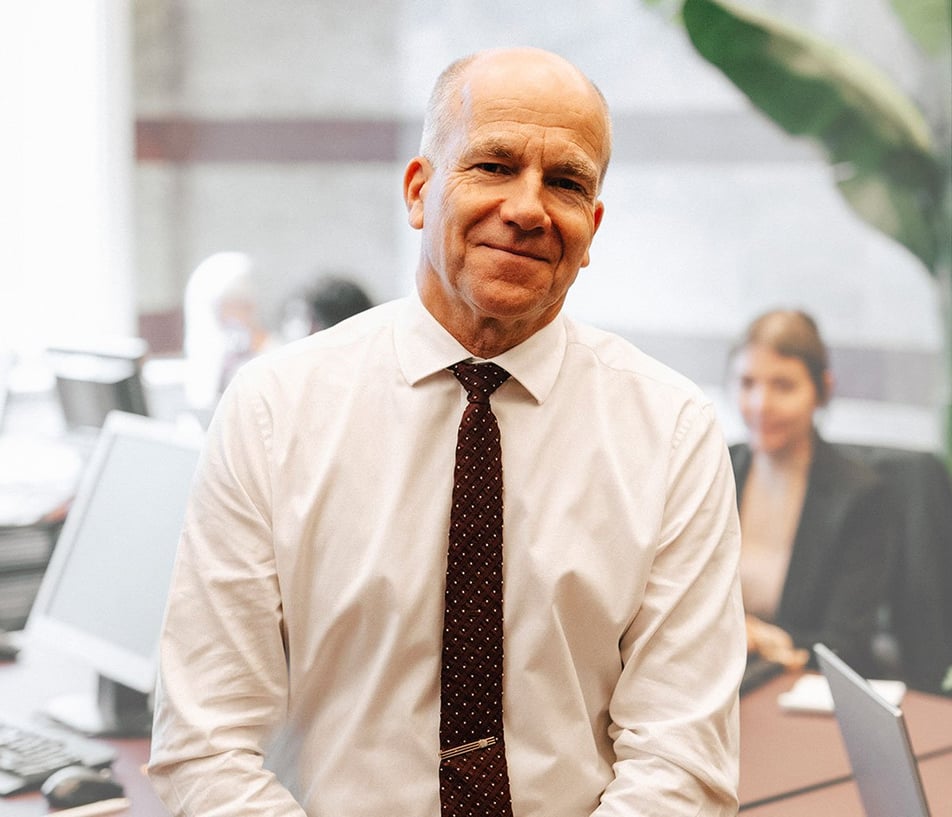
.png?width=400&height=400&name=CT-How_Can_We_Help-22_july_NewGraphic_b(small).png)

.png?width=1386&height=1224&name=2025%20Legal500%20Elite%20Boutique%20Award%20(Badge).png)
.png?width=1386&height=1224&name=ITR%20Finalist%20Practice%20Leader%20of%20Year%20Peter%20Aprile%202024%20(Badge).png)
.png?width=1386&height=1224&name=2025%20Legal500%20Leading%20Firm%20Client%20Satisfaction%20Award%20(Badge).png)
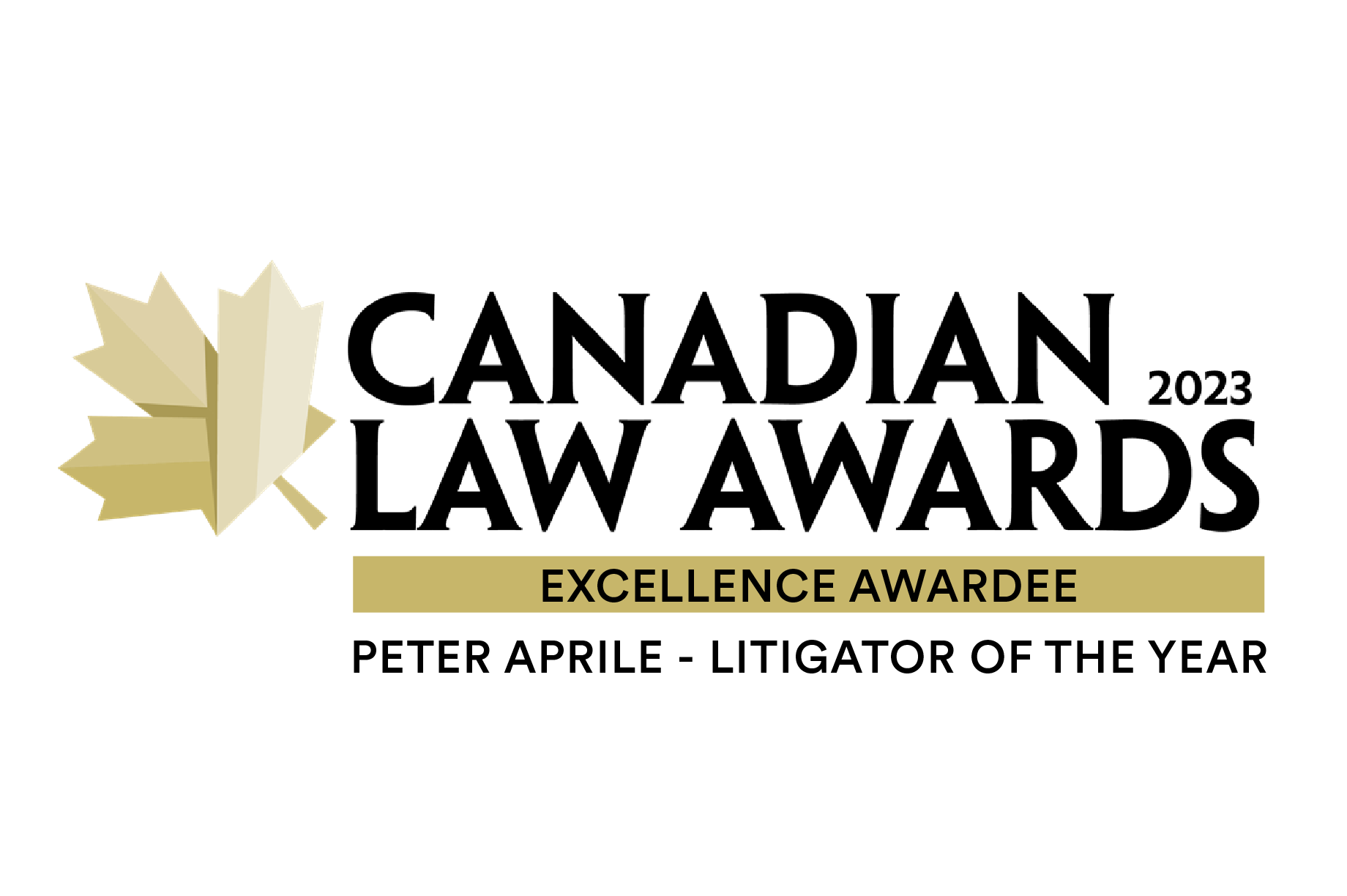
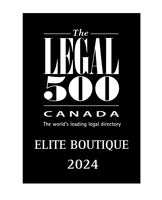


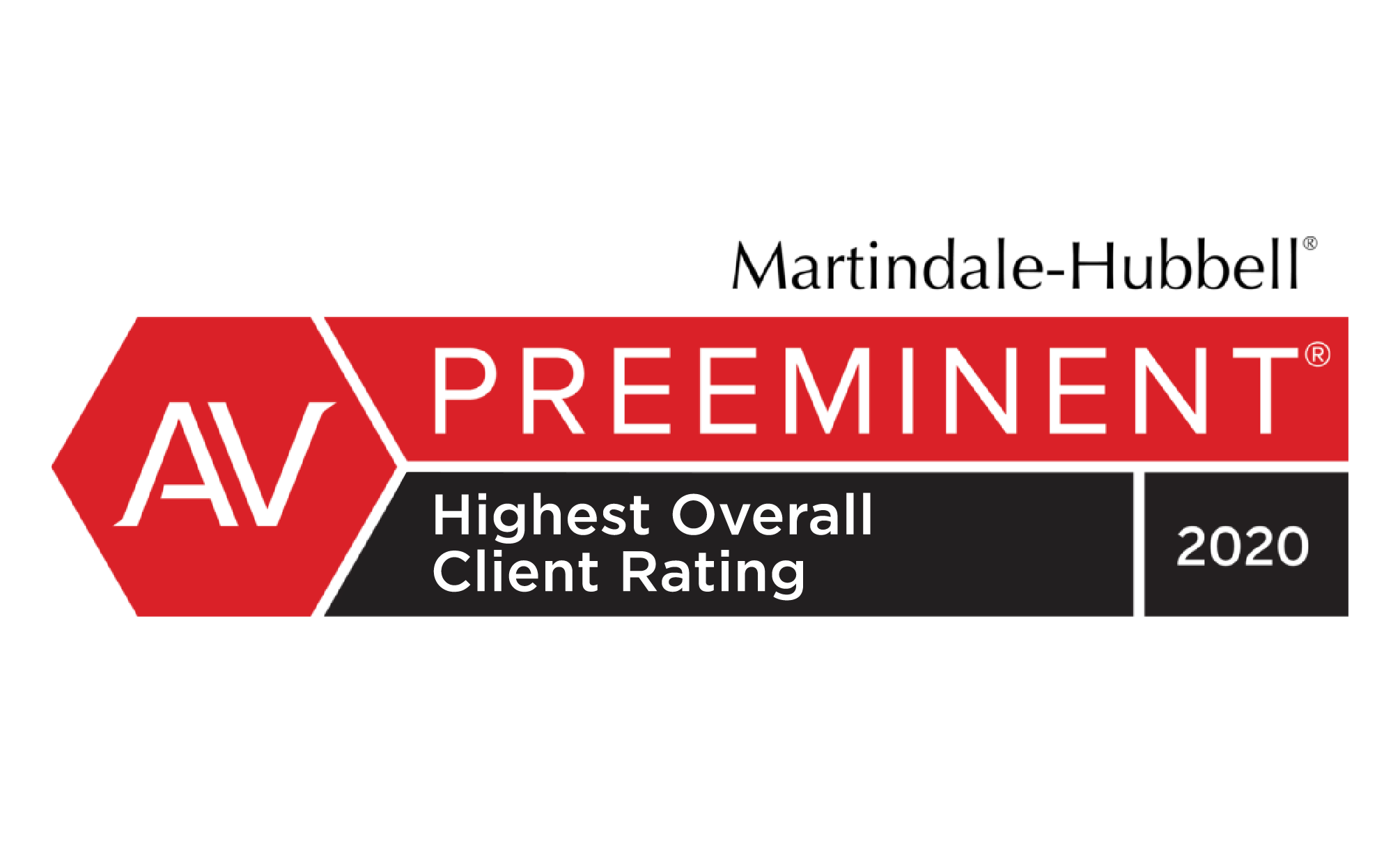
.png?width=1386&height=1224&name=ITR%20Tax%20Innovator%20Finalist%202024%20Award%20(Badge).png)

